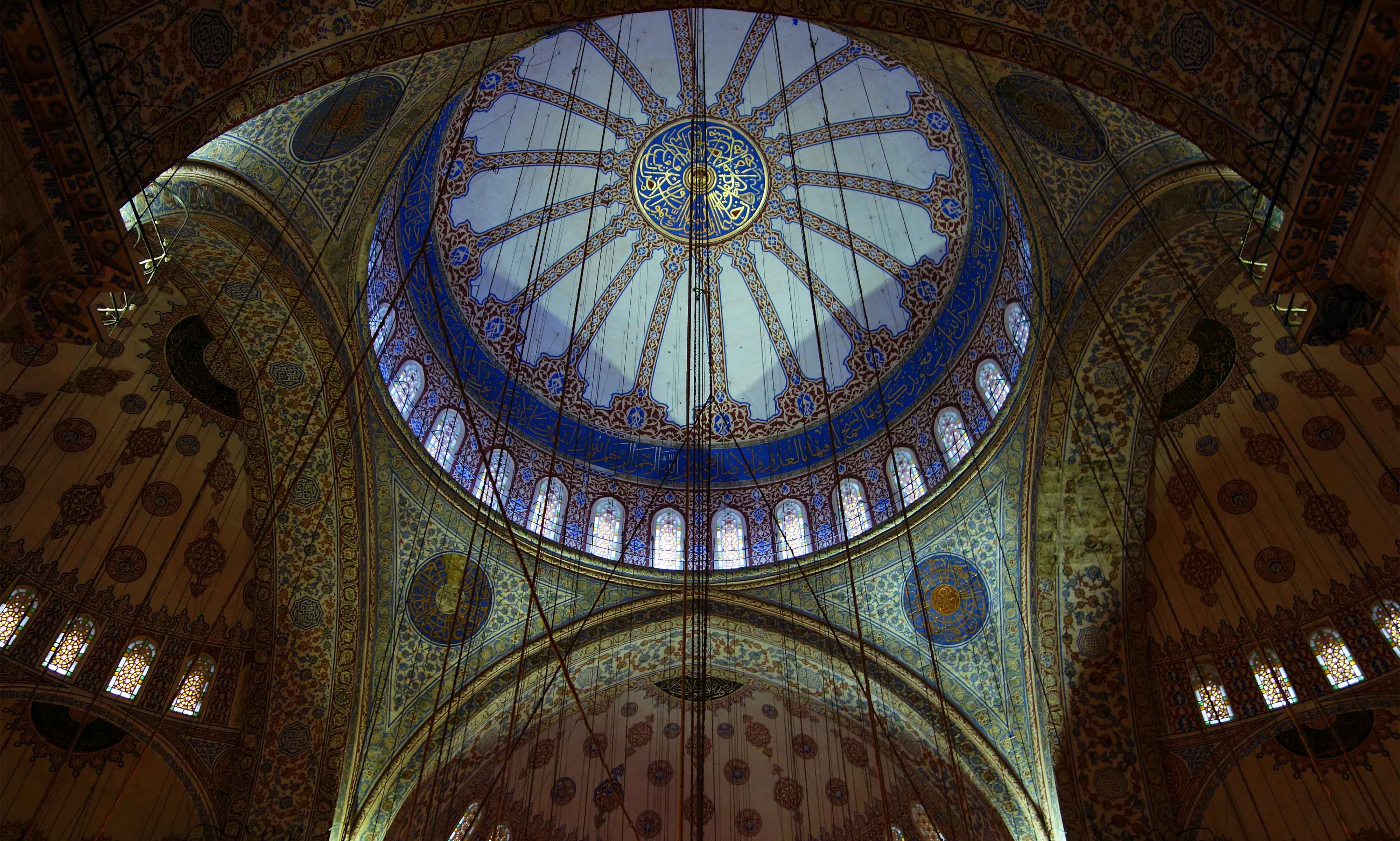Islam
1/45
There's no tags or description
Looks like no tags are added yet.
Name | Mastery | Learn | Test | Matching | Spaced | Call with Kai |
|---|
No analytics yet
Send a link to your students to track their progress
46 Terms
Abraham
“a figure revered by the three great monotheistic religions—Judaism, Christianity, and Islam… God called him to found a new nation in an undesignated land that he later learned was Canaan” - Britannica
Jerusalem
Jews believe that the Messiah will come and rebuild the temple in Jerusalem.
Jesus died and Christians believe was resurrected there. He also preached there.
Muslims believe that Muhammad ascended to heaven in Jerusalem before returning to Earth.
Monotheism
the belief in one god
Allah
Arabic name for the Abrahamic god
Mosque
the Islamic place of worship
Ishmael
was the son of Abraham who is credited with founding Mecca and is considered an ancestor to Muhammad
Medina
Originally called Yathrib. Where Muhammad fled to after his followers were attacked in Mecca. Muhammad united the Jews and Arabs there. Is the end location of the Hijrah
Imam
a prayer leader in a mosque/religious leader
Shi’a/shiite
smaller of the two major sects of Islam. believed that Muhammad’s successor should be family.
Khadijah
employed Muhammad as a trader and manager before marrying him when she was about 40 and he was about 25. She was wealthy and a business woman.
Muslim
a person of the Islamic faith
Hajj
a pilgrimage to Mecca where all pilgrims wear the same simple clothes to present as equal under Allah
People of the Book
Islamic term for Christian and Jewish people. They are tolerated and given religious freedom since they also believe in the Abrahamic god
Sufis
people who rejected a luxurious life and chose to live in poverty so they could focus on devotion to Islam
Fatimid (caliphate)
formed by Shi’a/shiite Muslims who claimed they were descendants of Muhammad’s daughter. Began in northern Africa but spread to Arabia. Third caliphate after the rightly guided caliphs. (fourth total). Only controlled Arabia, Egypt, Levant, and the northernmost part of Africa
House of Wisdom
mixture of a translation center, academy, and library and allowed scholars to translate/preserve knowledge that would have been lost otherwise.
Islam
an Abrahamic, monotheistic religion that believes in the prophet Muhammad
Shari’a
a system of law that controlled family life, moral conduct, business, and community of Muslims
Abbasids (caliphate)
murdered members of the Umayyad caliphate and moved capital to Baghdad which allowed for better trade and information exchange. existed at the same time as the Fatimid Caliphate in some regions. was the second caliphate after the rightly guided caliphs (third total). controlled land from Anatolia to Persia and other neighboring regions.
Polytheism
the belief in more than one god/deity
Muhammad
In Islam, is believed to be the last prophet of the Abrahamic religions. At about 40 years old, he had a revelation and founded Islam
Mecca
the place in Arabia where Muhammad was born and founded Islam. He fled Mecca due to hostility but returned later and defeated the Meccans. He called to prayer from the roof of the Ka’aba
Arabic
the language spoken in Arabia. Read from right to left. Here is an example:
العربية تبدو هكذا.
Sunni
Muslim leaders should follow Muhammad’s teachings and don’t have to be related to him
Ka’aba
an important Islamic monument. Muhammad called to prayer from its roof after his victory in Mecca. 🕋
Quran
the Islamic holy text that is a collection of Muhammad’s revelations
5 Pillars
the values/practices conducive to living as a Muslim
1) faith - a person must testify that they believe there is only one god and Muhammad is the messenger of that god
2) prayer - five times per day Muslims must pray facing mecca. they can pray wherever they are, but they can also visit a mosque
3) alms - a religious tax that is given to the poor
4) fasting - during Ramadan Muslims must fast between sunrise and sunset. is a reminder that spirituality is more important than physical needs
5) pilgrimage - Muslims must perform the Hajj, or a trip to Mecca, if they are able. This is expected to happen at least once in someone’s life
Bedouins
native people of the Negev desert (Israel)
Gabriel
the angel who spoke to Muhammad in his revelation and told him that he was a prophet
Hijrah
Muhammad’s migration from Mecca to Medina. marks the beginning of the Islamic calendar
Sunna
Muhammad’s example on how to live a good life
Caliph
a successor to Muhammad and a leader to the Muslim community
Umayyads (caliphate)
was led by Sunni Muslims. Held the belief that the first caliphates were “rightly guided” and moved the capital to Damascus. Valued wealth and ceremony. was the caliphate right after the rightly guided caliphs (second total) controlled a large portion of the Middle East.
Sakks
the progenitor to modern checks. they were Islam's letters of credit and were given to merchants from banks
Calligraphy
the art of decorative handwriting
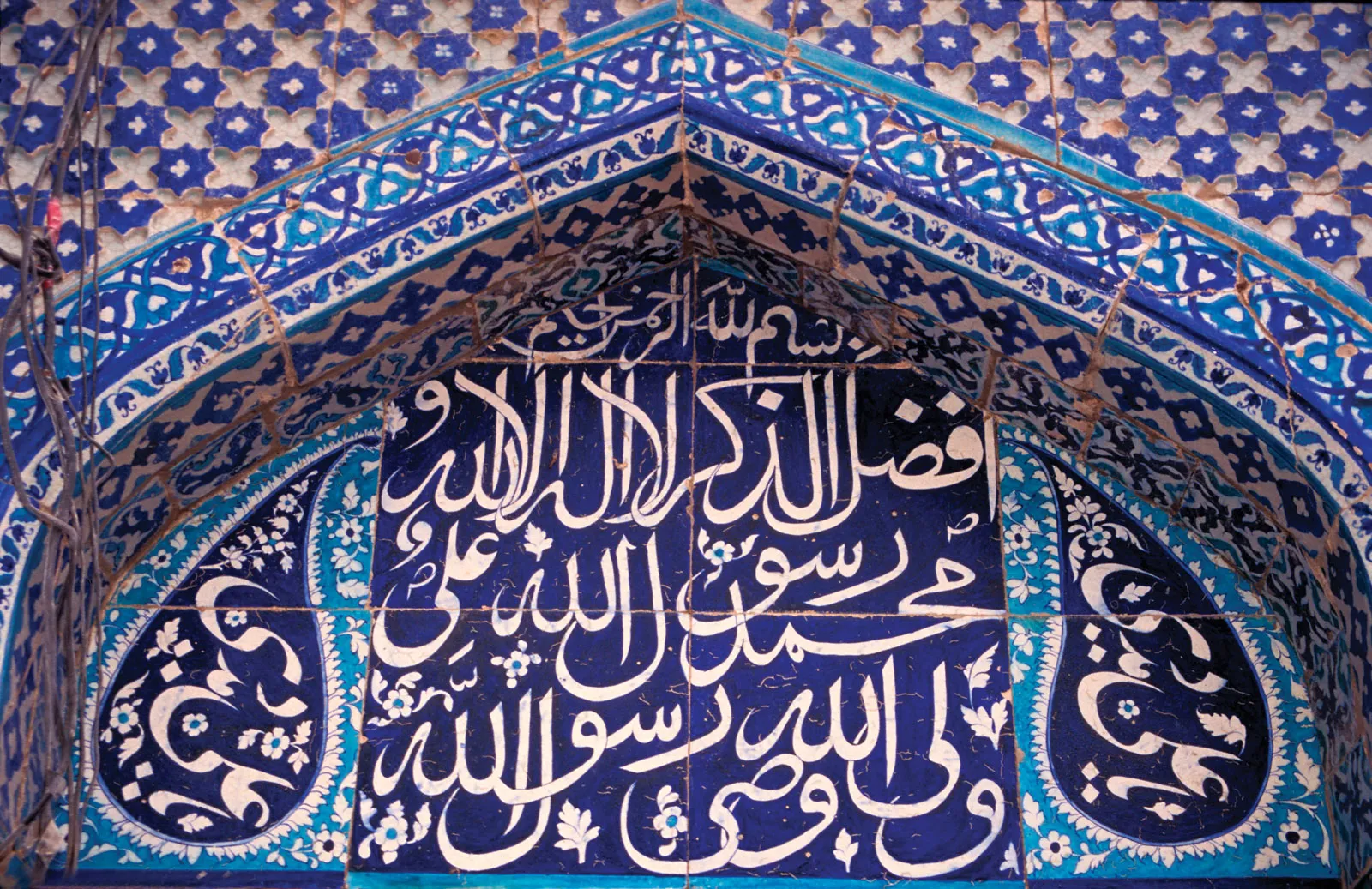
Dome of the Rock
a shrine/mosque in Jerusalem. is built where Muhammad is said to have ascended to heaven and returned to spread Allah’s message
Jihad
a fight or conflict with the enemies of Islam
Cordoba
is home to a mosque built in 748 CE. the mosque has a distinct Umayyad style
Rightly Guided Caliphs
the first four Caliphs (in this order, Abu Bakr, Umar ibn al Khattab, Uthman ibn Affan, and Ali ibn Abi Talib) were very successful in conquering lands such as Palestine, Egypt, Iran, Iraq, Armenia, and Syria. All four were connected to Muhammad, but not all were related to him by blood.
Open Courtyard
has a fountain for ablutions (spiritual cleansing of the body) and found in mosques
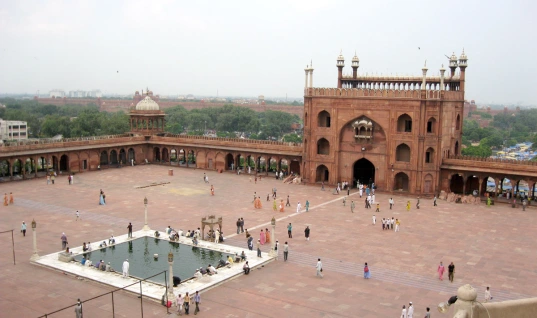
Minbar
a pulpit where an imam leads a prayer in a mosque
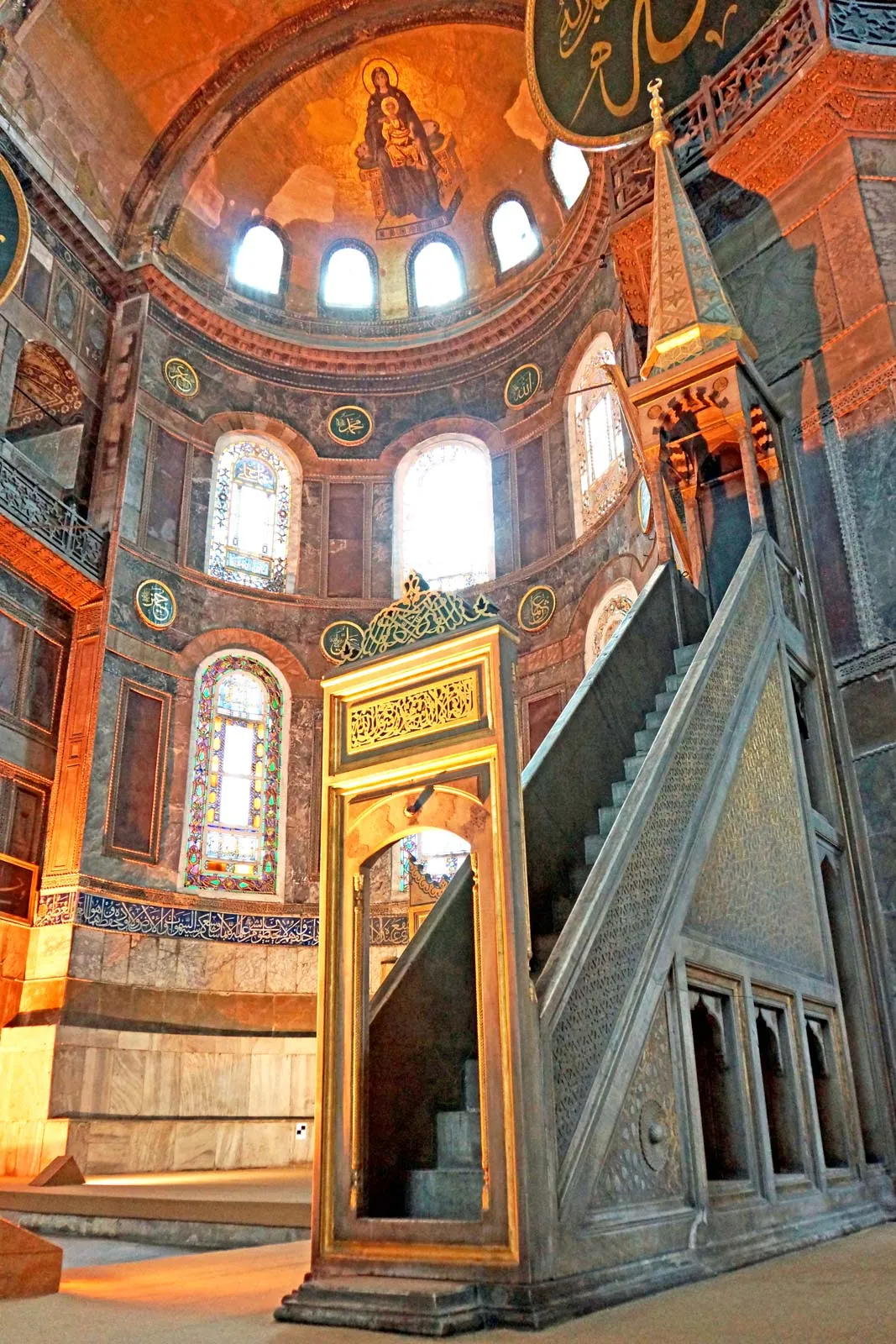
Minaret
a tower attached to a mosque. plays a tune/sound to call people to prayer five times a day
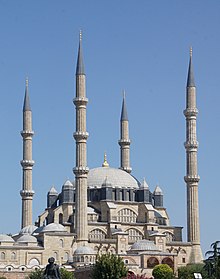
Qiblah Wall
a decorated wall of a mosque that faces towards Mecca. the minbar is also located here
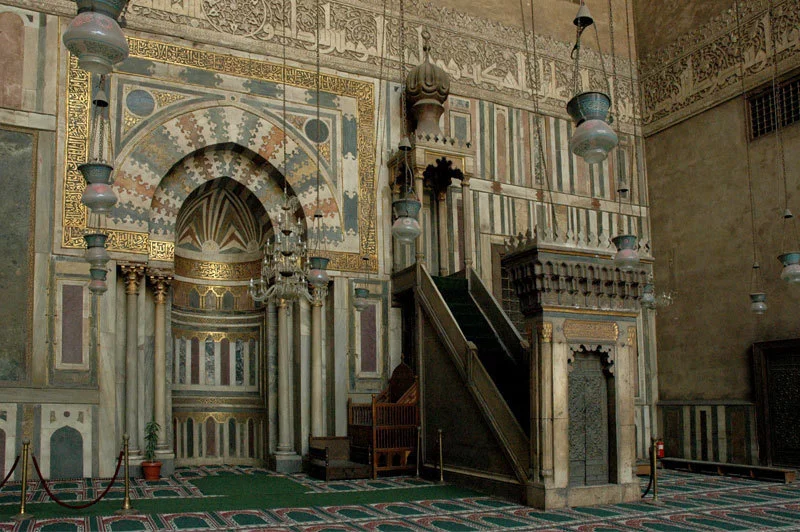
Adhan
the call to prayer that is sung/played from a minaret
Mihrab
a shallow recess/cavity in a mosque. found on the Qiblah Wall
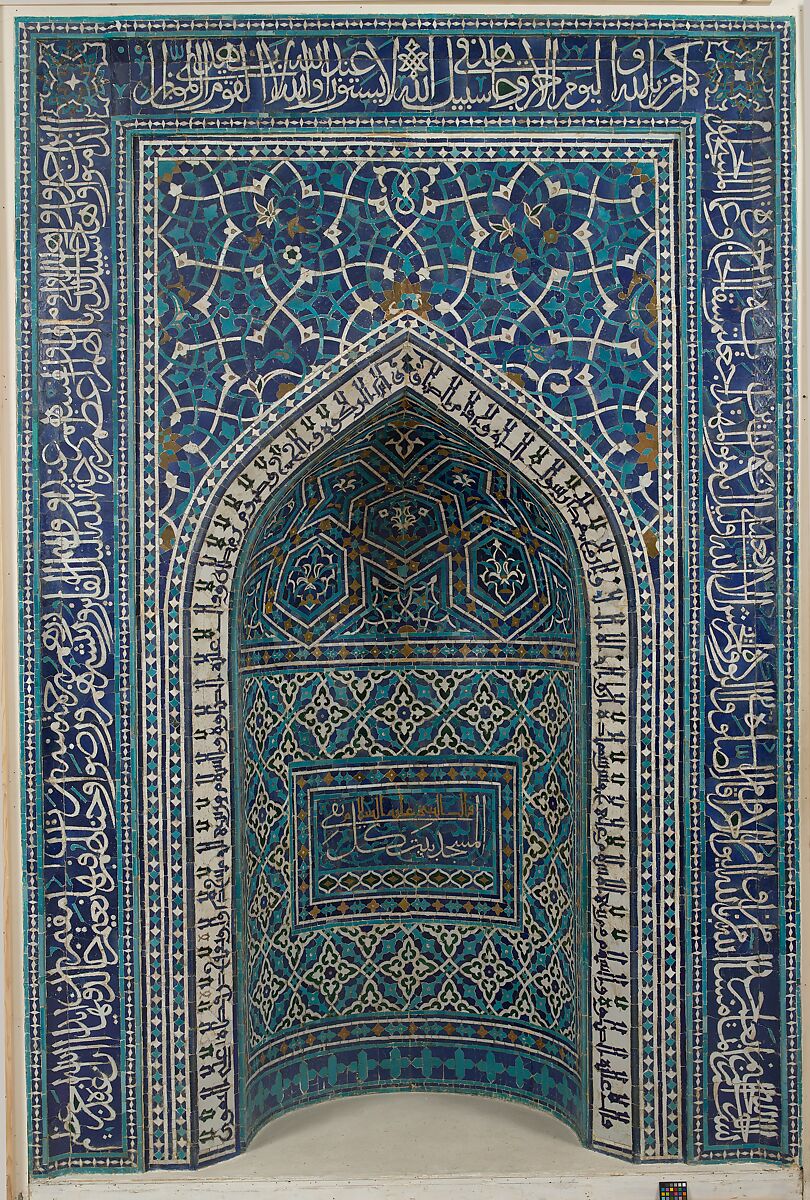
Dome (mosque)
a feature symbolic of the heavens and also allows voices to project throughout the mosque
